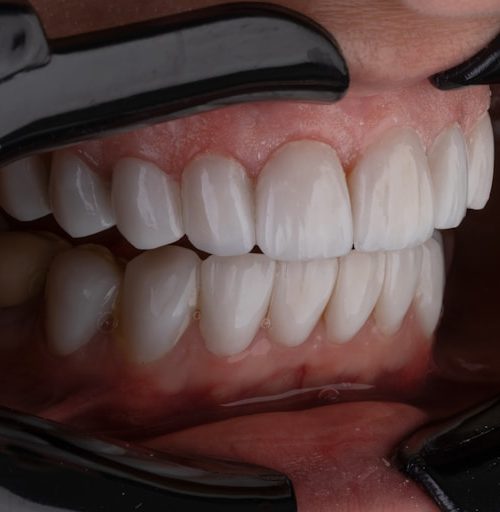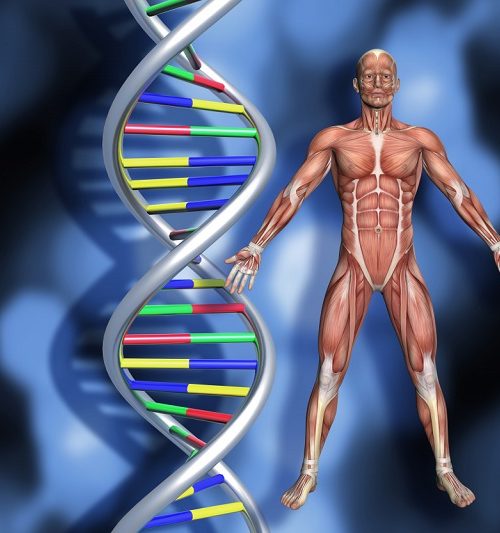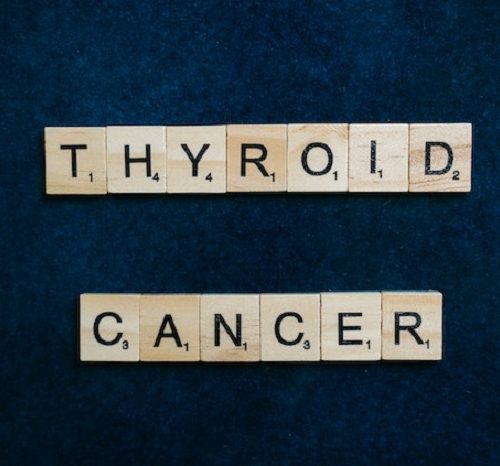Avocados are a common source of healthy fats, but did you know that half an avocado also provides many other essential nutrients? Thankfully, different varieties of avocados provide varying levels of these critical nutrients. Take for instance the Avocado Weight Management variety! At only 50 calories per half, this variety provides nearly 15% of your daily Vitamin C, 20% of your vitamin K needs, and an incredible 70% of your required fiber.
Interestingly enough, other avocado varieties provide roughly the same nutritional profile as the Avocado Weight Management variety. The California Hass avocado provides 14% of your Vitamin C, 19% of your Vitamin K, and 67% of your fiber. The Bacon variety provides 14% of your Vitamin C, 19% of your vitamin K needs, and 67% of your fiber. The Fuerte avocado provides 13% of your Vitamin C, 20% of your Vitamin K needs, and 66 % of your daily fiber. Even the Bacon, California Hass, and Fuerte varieties only provide slightly more calories than the Avocado Weight Management variety.
These numbers are impressive, but how many of these healthy nutrients can people expect to receive if they just eat half an avocado? To find out, let’s walk through a the article and eventually find out how many Calories in Half an Avocado.
But before that, let’s see whether Calories in Avocados are healthy.
Calories in Avocado: Are They Healthy?
Yes, Calories in avocado are healthy! As you read above, half an avocado will provide the same amount of nutrients as other varieties -therefore so long as you don’t eat excessive amounts it is completely healthy.
How Many Calories Are in Half An Avocado?
Half an avocado provides roughly 50 calories. The number may vary depending on the variety of the fruit, but this number is more or less accurate. So how much Calories can you end up eating in a day?
So If I Eat Half An Avocado Every day, How Many Calories Will I Consume?
Since half an avocado provides roughly 50 calories, you can eat half of one every day and consume 300 calories every week. This means that if you do this for a year, then you would end up consuming almost 15000 calories! Is that bad?
That depends on what your daily calorie intake is. If you’re not eating enough, then having half an avocado everyday can help boost your caloric intake considerably. On the other hand, if you’re already eating a lot of calories per day and you have a large appetite, then it might be a good idea to avoid eating too many calories from fat.
The best way to do this would be to calculate your own daily calorie needs. Use a website like your burn.com or myfitnesspal.com to determine how many calories you need per day – then multiply that number by 7! That’s how many calories you can eat every week from half an avocado if you’re still growing, or if you’re trying to lose weight.
Is There Any Type Of Fats In Avocado?
Yes, there are healthy fats in avocado! Half an avocado provides 17 grams of healthy monounsaturated fat. Monounsaturated fat has been shown to reduce LDL cholesterol while increasing HDL cholesterol. Additionally, the healthy fat will help to reduce the risk of cardiovascular disease , maintain blood sugar, and contribute to a healthy weight.
The best part is that half an avocado also provides 12 grams of polyunsaturated fats! Omega-6 fatty acids are essential in reducing inflammation throughout the body, but it’s often difficult for people to get enough of these fatty acids. Therefore getting 12 grams of omega-6 fatty acids in half an avocado is a great way to reduce inflammation!
What are the health Benefits of Avocado?
There are too many benefits to list! Half an avocado provides nearly 20 vitamins and minerals – including fiber, potassium, calcium, Vitamin E, magnesium , B-vitamins. Simply put – half of a medium sized avocado is a well-rounded meal in itself.
Avocado is Incredibly Nutritious
This is the first health benefit of eating an Avocado. As explained above, an Avocado has vitamins and minerals that are very essential in the human body. It has Vitamin E, Calcium, Fiber, B-Vitamins and several other nutrients. Including half an avocado in your daily diet can significantly boost your nutrition without adding too many calories. In particular, it’s a good way to get Vitamin E, fiber, calcium, magnesium, potassium, and polyunsaturated fats.
Cardiovascular disease
It also contains a lot of monounsaturated fat which has been proved to reduce LDL cholesterol and increase HDL cholesterol further reducing the risk of cardiovascular disease. This is significant because cardiovascular disease is one of the most common causes of death worldwide.
Diabetes
Monounsaturated fats are metabolized in the liver, which means that they don’t require insulin to enter cells for metabolism. This makes it easier for people with Type 2 diabetes to loose weight and maintain a healthy lifestyle. Additionally, half an avocado provides a diverse range of fiber and nutrients that reduce blood sugar.
Weight Loss
Half an avocado is relatively high in calories, but it can help boost your metabolism and provide you with enough energy to complete your daily routine! Since it’s also very filling and nutritious, we recommend having half an avocado as part of a meal or using it as a replacement for a meal if you’re trying to lose weight.
Helps protect against cancer
Avocados contain antioxidants and phytonutrients that may help protect against cancer and heart disease. These nutrients include glutathione, beta-sitosterol, B-vitamins, lutein and zeaxanthin which are all essential in protecting our bodies from cancer and other diseases.
It’s recommended that individuals eat one to two avocados per week to gain all of the health benefits.
Risks of Taking too much Avocado
Avocado do taste good and provide so many benefits, but there are some risks associated with it. Risks vary from an allergic reaction to a simple stomachache. To stay safe always check the ingredients before you buy one and remember that moderation is the key! So lets list some of the risks associated with taking too much avocado.
Allergic reactions
The most common risk of taking too much avocado is an allergic reaction. According to the American College of Asthma, Allergies and Immunology allergy to avocados is not very common, but may develop in people who are already allergic to latex. The protein found in avocados can trigger a similar protein found in latex that it may cause an allergic reaction in some people.
Stomachache or other digestion issues
The health benefits of avocado are incredible, but there are often some risks associated with eating too much. The biggest risk is having an upset stomach because avocados can be difficult to digest. To avoid this simply eat half of a cut avocado instead of eating the entire thing.
So How much Avocado should you eat?
One avocado has about 240 calories and is a great source of healthy fats, fiber and Vitamin E. While it’s okay to eat an entire Avocado in one sitting, we recommend that you enjoy half in the morning and the other half at night. It can be difficult to digest so always remember to add some salt or lemon juice.
You can also add half an avocado to your favorite meal if you’re having trouble getting rid of your cravings for fatty foods.
Just remember that it’s always better to eat half than to eat the entire thing in one sitting. Otherwise, you might experience some stomachaches or digestive issues!
How to moderate Avocado Intake?
Just because avocados provide a large amount of benefits, it doesn’t mean that you should eat more than one avocado per day. Like we said before, moderation is the key! If you’re looking to lose weight and gain all of the benefits associated with Avocado’s , then we recommend having half an avocado in replacement for a meal.
This means that you can simply replace your breakfast, lunch or dinner with half an avocado to lose weight and gain all of the health benefits! If you find it difficult to eat half an avocado by itself, then we recommend adding some lemon juice or salt so it tastes better.
Since an Avocado contains about 240 calories it’s a good idea to eat half in the morning and half at night if you’re trying to lose weight. This way, your metabolism will increase and you’ll be able to eat less throughout the day without feeling hungry or tired!
Ripe or Unripe Avocado?
If you’re not sure how ripe an avocado is, then we recommend smelling it to make sure that it doesn’t smell like anything. If there isn’t any smell, then the avocado is probably under-ripe and not yet ready to eat.
However, if it smells like something has gone bad or is starting to rot, then it’s probably overripe and has gone bad.
If you’re trying to cut an avocado in half, then make sure that the outside of it feels firm when you touch it. If the fruit is soft, then there’s a chance it could be rotten inside which can cause some serious health risks!
It’s always better to err on the side of caution when it comes to health so we recommend that you take a small bite before eating an entire Avocado to make sure it tastes good and doesn’t give you any stomachaches.
What Else Should You Know About Calories In Avocado?
There are approximately 2-3 grams of protein in half an avocado! Additionally, there are roughly 50 calories from carbohydrates (17 g) and only 50 calories from fat. This makes half an avocado a great meal to eat alongside some meat or fish.
In fact, eating half an avocado can go a long way in helping you maintain a balanced diet while ensuring that you’re getting all of your daily nutrients! Plus since it provides a slow-burning energy source from healthy fat, there’s no reason for you to feel guilty about eating half an avocado everyday!
Should you eat Avocado Seeds?
These are the questions that everyone is asking.
You can eat seeds but they’re very chewy, crunchy and tastes bitter. It’s not worth it unless you really enjoy eating them which I doubt anyone does!
So what about avocado seed health benefits?
Well, there’s none. You see, according to this study , ” The use of dietary oils for body care is not new. Avocado, olive and sesame seeds are part of the regular diet in some countries where they are eaten as salad or cooked. These culinary uses have led to the assumption that these oils would also serve as skin moisturizers because of their ability to remain on the skin’s surface without being absorbed. This assumption is erroneous. Rumenic acid, which occurs naturally in avocado seed oil, was tested for its ability to reduce the loss of water by the skin and its moisturizing capacity. The results of this study show that rumenic acid has no effect on water loss through the skin. Furthermore, when applied topically it had no moisturizing effect.”
So why eat avocado? There are at least 100 reasons you should. Avocados reduce your appetite, regulate blood sugar levels and improve cardiovascular health.
What’s the best time to eat an Avocado?
Just before you go to bed! Eating half of one before you sleep will increase fat burning while reducing hunger pangs throughout the night.
Conclusion
So if you were wondering how many calories are in half an avocado, then this article has answered you. Buts important to conclude by saying that Calories In Avocado is a healthy nutrient for the body. Moreover, half an avocado provides the same amount of nutrients as whole avocados – with the added advantage that half an avocado is easy to handle and you can eat it at your own pace.
Having this healthy nutrient in your diet will help you increase body weight if you’re not eating enough calories per day, and reduce body fat if you’re already eating a lot of daily calories! As long as you make sure to vary your diet and to get a balanced amount of nutrients daily, then eating half an avocado will be a great addition to your diet!
So add half an avocado to your daily meals – you’ll enjoy the taste and you’ll love the results!






